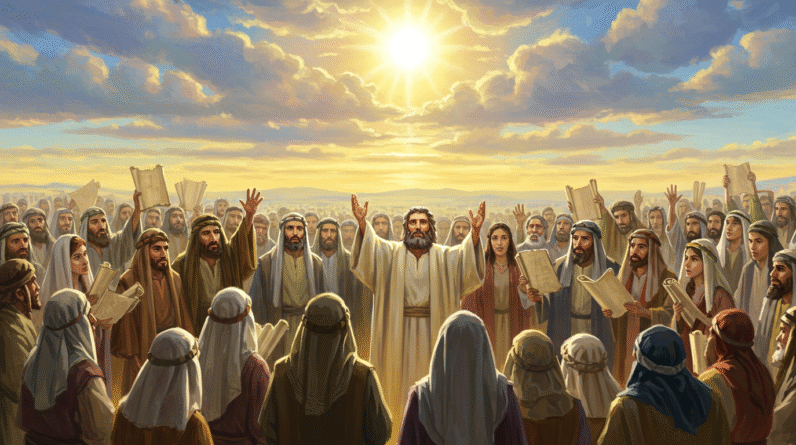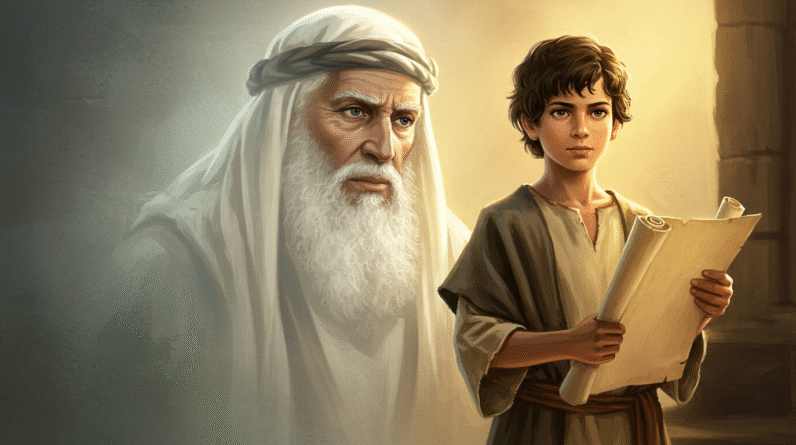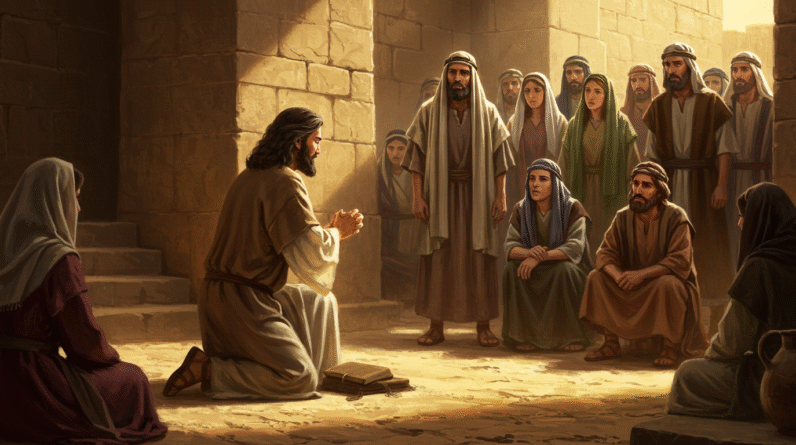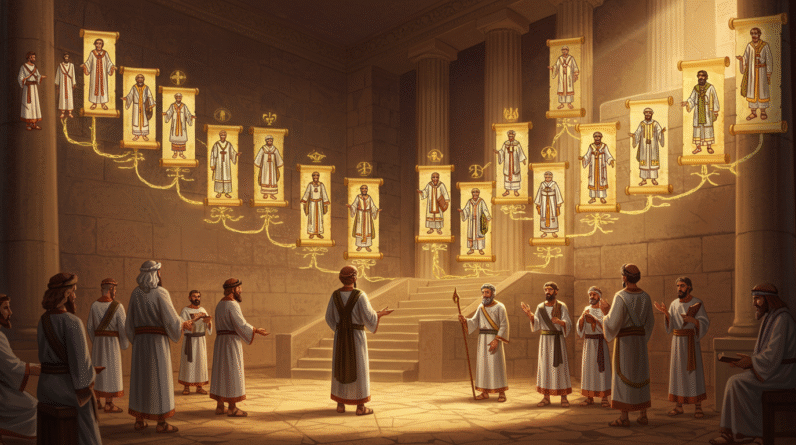Introduction: Aaron and the Golden Calf
In the tapestry of biblical narratives, few stories stand out as vividly as the tale of Aaron and the golden calf. It’s a story that echoes through the millennia, rich with lessons about leadership, human frailty, and divine grace. As you delve into this narrative, you’ll discover that the tale of Aaron and the golden calf is not just an ancient episode of idolatry but a profound reflection on the complexities of leadership. By examining Aaron’s role in this episode, you’ll uncover insights into both human weakness and God’s unwavering mercy.
The Context: An Era of Miracles and Doubts
When the Israelites were led out of Egypt, they were thrust into an era punctuated by miracles and profound doubts. Having witnessed the splendor of divine intervention, from the parting of the Red Sea to the constant presence of manna from the heavens, you’d think that faith would come easily to them. However, it was a time of great uncertainty and fear, as the unknown wilderness loomed large, testing their resolve at every turn.
Moses ascended Mount Sinai to receive the Ten Commandments, leaving his brother Aaron in charge. With Moses gone for forty days and nights, the people grew restless and anxious. It’s important to understand that the Israelites were still disentangling themselves from the cultural and religious practices they had lived with in Egypt. They wanted tangible assurance, something visible to hold onto in the absence of Moses.
Aaron’s Role: A Leader Under Pressure
Here’s where Aaron’s pivotal role comes into focus. As a leader, Aaron was caught between maintaining order and managing the people’s demands. Leadership is never devoid of pressure, and in Aaron’s case, the stakes were incredibly high. When the Israelites cried out for a god to lead them, Aaron’s response was to yield to their demands, creating an idol cast in the shape of a golden calf. This decision reflects the tricky terrain that leaders often navigate—a choice between steadfast adherence to principles and succumbing to immediate pressures for the sake of maintaining peace.
Aaron’s involvement in the golden calf incident highlights a universal truth: leaders are human, susceptible to making mistakes, particularly under immense pressure. It’s easy to judge Aaron’s actions harshly, yet it’s vital to recognize his humanity and the challenging circumstances he faced. Even with the best intentions, leaders can falter, which is why the concept of grace is essential in leadership, both receiving it and extending it to others.
The Golden Calf: A Symbol of Human Weakness
The golden calf itself is a powerful symbol of human weakness and the desire for tangible reassurances. For the Israelites, this idol was meant to provide a sense of control amidst chaos. Despite their direct experiences with divine miracles, their need for a physical representation of deity underscores a common human frailty— the tendency to trust in what can be seen and touched rather than embrace the unseen and eternal.
This aspect of human nature is not confined to the ancient past. Even today, people often gravitate towards physical symbols that provide a sense of security and identity. The real question that this episode poses is: where do you place your trust? The golden calf serves as a reminder that the allure of easy answers and visible symbols can be misleading and divert from true paths of faith and purpose.

Reflections on Leadership: Balancing Authority and Empathy
When reflecting on Aaron’s leadership, it’s valuable to explore how you balance authority with empathy. Leaders, like Aaron, are called to guide, inspire, and protect. Yet, the challenge often lies in how to achieve this without alienating those you aim to lead.
Aaron’s actions during the golden calf incident offer a cautionary tale. Effective leadership isn’t simply about maintaining harmony or yielding to every demand; it’s about discerning when to stand firm and when to adapt. True leadership requires a keen understanding of the needs and fears of your community, as well as the courage to stand up for what is right, even when unpopular.
In your journey as a leader, you must ask yourself: how do you handle moments of pressure? Are there times when, like Aaron, you may have chosen compromise for the sake of immediate peace? How can you grow to make decisions that are rooted in both empathy and principle?
Spiritual Growth: Learning from Mistakes
The story of Aaron and the golden calf is a vivid illustration of spiritual growth through learning from mistakes. Aaron’s decision to create the idol was far from God’s will, yet this misstep became an opportunity for reflection and growth, both for Aaron and the Israelites.
Mistakes are an inevitable part of the human experience, and spiritual growth often springs from the lessons you learn in their aftermath. It’s in the process of recognizing errors, seeking forgiveness, and recommitting to better paths that deeper spiritual insights are revealed. In Aaron’s story, the importance of seeking God’s guidance in times of uncertainty and adhering to divine principles, even when challenged, is a theme that resonates deeply.
God’s Mercy: A Beacon of Hope
One of the most compelling aspects of the golden calf narrative is the depiction of God’s mercy. Despite the severe breach of faith and the consequences that followed, God did not abandon the Israelites or Aaron. After Moses interceded on behalf of the people, God showed mercy, allowing the covenant to be renewed.
This episode underscores a core tenet of faith—God’s mercy is abundant and available even when you falter. This mercy is not an excuse for mistakes but a transformative force that encourages repentance and renewal. For leaders, recognizing the role of mercy in the divine and human equation can be both humbling and inspiring. It’s a reminder that even when you fall short, there is hope for restoration and growth.
The Enduring Lessons of Aaron and the Golden Calf
As you ponder the tale of Aaron and the golden calf, the leadership takeaways are clear and profound. The story is a timeless reminder of the human predisposition towards visible assurances and the complex nature of leadership. It’s a call to examine where you place your trust and to pursue a leadership style that is rooted in empathy, integrity, and faith.
From Aaron’s experience, you learn the importance of resilience and reflection in the face of failure. Equally, you are reminded of the importance of divine mercy, which offers hope and encouragement to strive for greater spiritual growth and leadership effectiveness.
Whether you face challenges involving faith, leadership, or personal growth, Aaron’s story encourages you to look beyond immediate pressures and seek lasting solutions rooted in truth and grace.
Conclusion: Embrace the Journey
In the end, the story of Aaron and the golden calf isn’t merely an ancient narrative; it’s a reflection of the timeless struggles inherent in leadership and faith. It reminds you that being a leader comes with formidable challenges but also offers opportunities for profound growth.
As you continue your leadership journey, let the lessons of Aaron’s story guide you in moments of doubt and pressure and inspire you to lead with courage, integrity, and compassion. Embrace the opportunity to grow from your mistakes, and remember the power of divine mercy that steadies your path.
Explore More
For further reading and encouragement, check out these posts:
👉 7 Bible Verses About Faith in Hard Times
👉 Job’s Faith: What We Can Learn From His Trials
👉 How To Trust God When Everything Falls Apart
👉 Why God Allows Suffering – A Biblical Perspective
👉 Faith Over Fear: How To Stand Strong In Uncertain Seasons
👉 How To Encourage Someone Struggling With Their Faith
👉 5 Prayers for Strength When You’re Feeling Weak

📘 Jesus and the Woman Caught in Adultery – Grace and Mercy Over Judgement
A powerful retelling of John 8:1-11. This book brings to life the depth of forgiveness, mercy, and God’s unwavering love.
👉 Check it now on Amazon
As a ClickBank Affiliate, I earn from qualifying purchases.
Acknowledgment: All Bible verses referenced in this article were accessed via Bible Gateway (or Bible Hub).
“Want to explore more? Check out our latest post on Why Jesus? and discover the life-changing truth of the Gospel!”








